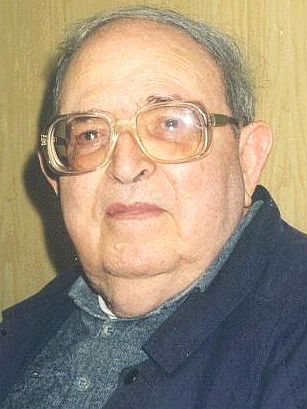Daniel Comboni
Comboni Missionaries
Institutional area
Other links
Newsletter
In Pace Christi
Meloni Giovanni
Fr. Giovanni Meloni was born on 12 July, 1920, at San Gavino Monreale in Sardinia. He was only ten when he was allowed to enter the junior seminary at Carraia (Lucca). He later moved on to that of Brescia where he finished secondary school. In 1936 he joined the novitiate at Venegono and took first vows in 1938. He studied theology at Verona, Brescia and Rebbio due to the war and was ordained priest on 3 June, 1944. He took a degree in letters at the University of Milan, specialising in Spanish literature.
Having spent 20 years in Italy (Venegono, Rebbio and Sulmona), mostly as a teacher and formator, he was appointed to Ecuador where, after some months in the parish of Muisne, on an island facing the Pacific Ocean, he was sent to Esmeraldas. There he stayed for almost all his missionary service (28 years), except for a period of seven years (1984-1991), when he was sent as director of Boys’ Town in La Paz in Lower California, Mexico.
Teaching was his characteristic. He was appointed rector of the Catholic college “Sagrado Corazón de Jesús”, when this was just a modest education establishment with only a few students and a few unqualified professors. Within a few years it had become the number one college of the city. When he resigned as a rector, he founded, with the direct help of the ministry of education, the “Instituto Normal Superior” for the training of primary school teachers for the entire province. Since one of the conditions of being a rector was to be a citizen of the country, Fr. Giovanni became naturalised in July 1975.
He later left the Instituto Normal Superior to the Salesians and committed himself to the foundation of the Catholic University of Esmeraldas, as a separate part of the Catholic University of Quito. He was relieved of this commitment by his superiors and placed in charge of La Paz Boys’ Town. Before he left Ecuador, the Ministry of Education conferred on him its highest award: the “Condecoración al Mérito Educativo de Primera Clase”.
If the education of the youth through the school was the first aim of Fr. Giovanni, his second was the education of the catechists of the small Christian communities of Esmeraldas. Especially during the school holidays, he saw to the formation, whether spiritual, didactic or theological of the lay leaders of the rural communities. Before every meeting he would prepare for them a series of notebooks to leave in their hands a simple and clear guide which they could read over and study as the basis of their formation.
On his return from Mexico to Esmeraldas, Fr. Giovanni was appointed spiritual director of the junior seminary of the Vicariate.
Giving his testimony, Fr. Alberto Doneda underlined how Fr. Giovanni was very much esteemed and on good terms with everyone, especially the professors and students of the higher level schools and university. This was due to his amiable character (politeness, gentleness and self control), his patience and his competence in the various subjects he taught.
There were two occasions which brought him much suffering: the first was when, while he was at the peak of his career as a high-level professor, he was sent to Lower California, in Mexico, to run the Boys’ Town there; the second was when he realised that the sector of education and teaching (the mission and its mandate to teach) was completely excluded from the plans of the Comboni Missionaries in Ecuador, both by order of the superiors and because of lack of personnel.
In 2000, Fr. Giovanni was assigned to the Italian province and the community of Arco. He died in Verona on 15 October, 2010.
In his testimony, Fr. Teresino Serra remembered him as the elderly man who was always young at heart: the professor and the formator: the missionary who dreamt of Africa but who joyfully went to Ecuador where he committed himself with all his strength in the field of education; the ‘Grandpa’, as he was affectionately called in La Paz; lastly, a somewhat unknown figure, because it is not easy to paint a picture of this Sardinian missionary who loved the mission of Comboni. We can say with certainty that in his ninety years he sowed much. And those who sow reap.

